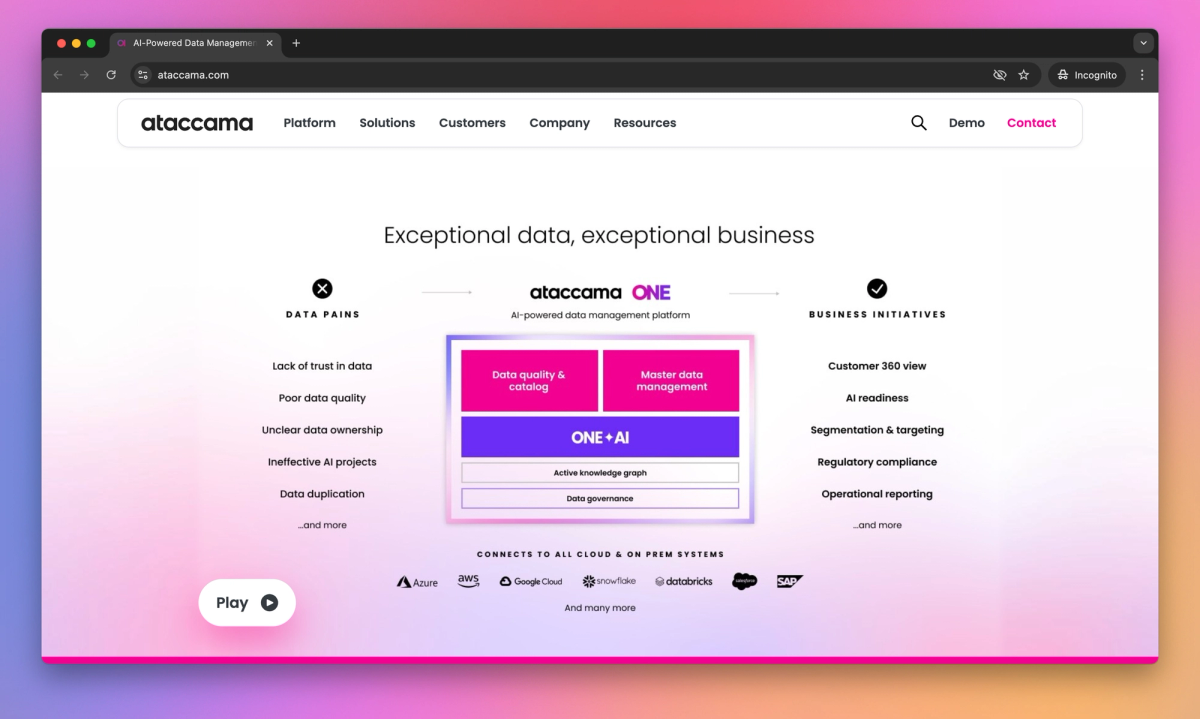

What is Ataccama?
Ataccama is an AI-powered data management platform that consolidates and governs data across multiple domains. It helps data scientists and analysts improve model performance and reduce data preparation time through automated data quality checks, profiling, and governance features.
What sets Ataccama apart?
Ataccama sets itself apart by allowing data scientists to focus on model building rather than data wrangling. The platform's AI-driven approach helps analysts quickly identify and fix data issues, such as missing values or inconsistencies across datasets. By automating tedious data preparation tasks, Ataccama gives data teams more time to extract meaningful insights and develop accurate predictive models.
Ataccama Use Cases
- Data quality management
- Master data consolidation
- Data catalog creation
- Reference data governance
- Data observability monitoring
Who uses Ataccama?
Features and Benefits
- A collaborative platform for data activation that automatically discovers, classifies, and documents data assets across your organization.
Data Catalog
- An AI-powered solution that profiles, cleanses, and standardizes data to ensure accuracy and consistency across systems.
Data Quality
- A monitoring system that detects anomalies, data quality issues, and schema changes to maintain data reliability.
Data Observability
- A flexible system for consolidating and managing critical data from multiple domains to create a single source of truth.
Master Data Management
- A centralized solution for maintaining and distributing valid reference data across the organization for analytics and operations.
Reference Data Management
Ataccama Pros and Cons
Pros
Provides customer data integration with built-in data quality engine
Offers data business optimization capabilities
Has a global presence with worldwide operations
Offers various membership levels for different user needs
Cons
Reported as a potential scam by multiple users
Users claim to have lost significant amounts of money
Employs deceptive recruitment practices
Requires increasingly large investments from users
Refuses to return user investments
Ataccama Alternatives
Unlock your data for specialized AI
Transform apps into tailored experiences








